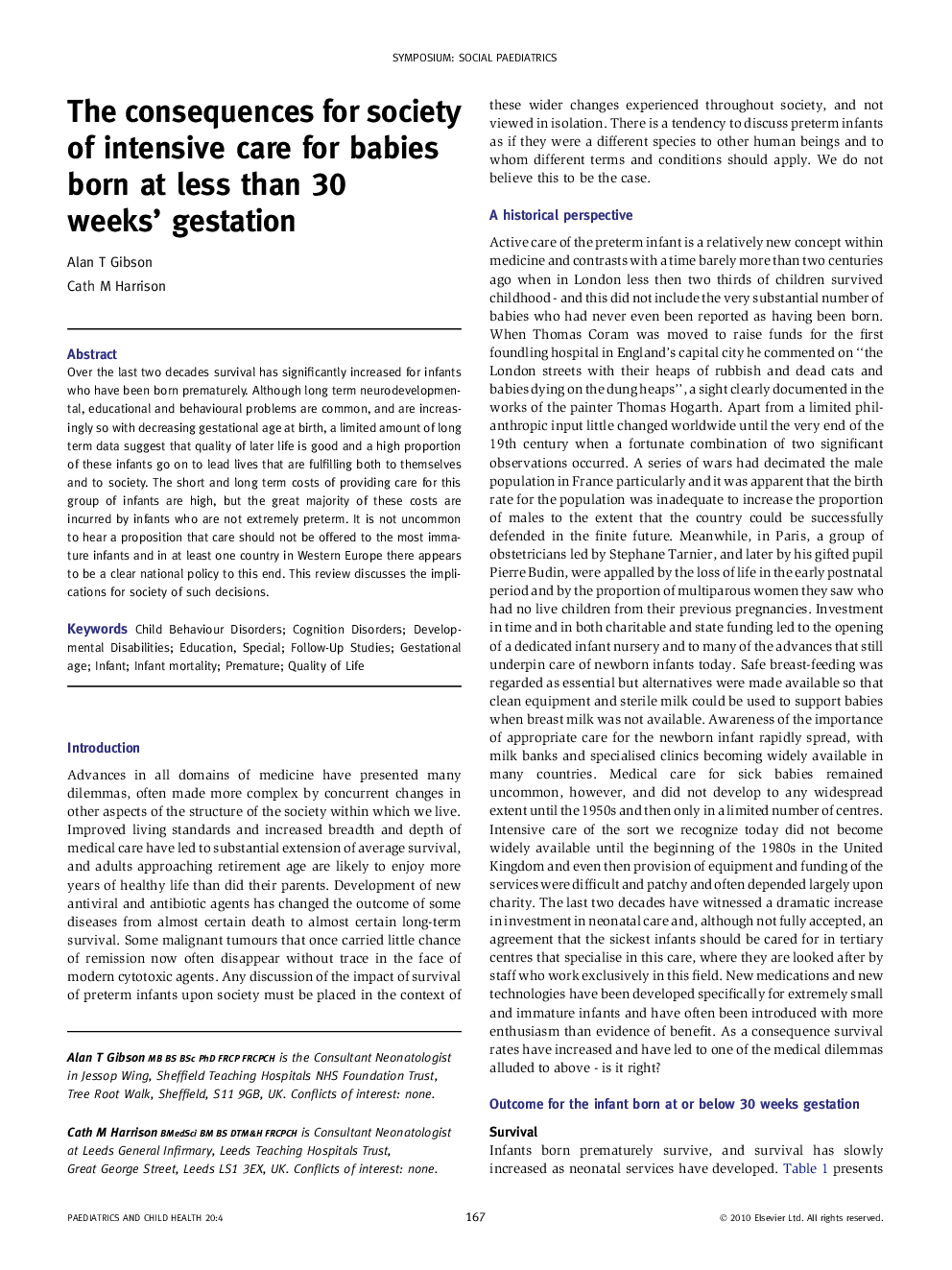| Article ID | Journal | Published Year | Pages | File Type |
|---|---|---|---|---|
| 4172648 | Paediatrics and Child Health | 2010 | 7 Pages |
Abstract
Over the last two decades survival has significantly increased for infants who have been born prematurely. Although long term neurodevelopmental, educational and behavioural problems are common, and are increasingly so with decreasing gestational age at birth, a limited amount of long term data suggest that quality of later life is good and a high proportion of these infants go on to lead lives that are fulfilling both to themselves and to society. The short and long term costs of providing care for this group of infants are high, but the great majority of these costs are incurred by infants who are not extremely preterm. It is not uncommon to hear a proposition that care should not be offered to the most immature infants and in at least one country in Western Europe there appears to be a clear national policy to this end. This review discusses the implications for society of such decisions.
Keywords
Related Topics
Health Sciences
Medicine and Dentistry
Perinatology, Pediatrics and Child Health
Authors
Alan T. Gibson, Cath M. Harrison,
